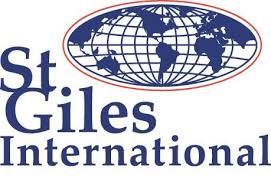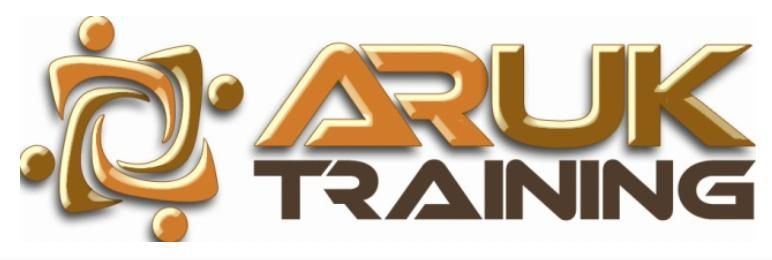
Planning, Organizing, Negotiating and Work Coordinating
Course ID: 2510277101361EGI
Course Dates : 27/10/25 Course Duration : 5 Studying Day/s Course Location: Dubai, UAE
Language: Bilingual
Course Category: Professional and CPD Training Programs
Course Subcategories: Operations and Process Excellence
Course Certified By: * Projacs Academy
* Professional Training and CPD Programs
Certification Will Be Issued From :
KSA
Course Fees: £2,940.22
Vat Not Included in the price. VAT may vary depending on the country where the course or workshop is held.
Click to Pay
Date has passed please contact us Sales@e-s-hub.com
Course Information
Introduction
The ability to plan, organize, negotiate, and coordinate work effectively is crucial to achieving both individual and organizational success. These competencies form the cornerstone of professional performance, ensuring that objectives are met efficiently and outcomes are aligned with strategic goals. Planning entails setting clear, actionable goals and devising pathways to achieve them, while organizing involves arranging resources and tasks in a manner that maximizes productivity. Negotiation skills are essential for reaching mutually beneficial agreements, whether within a team or with external stakeholders. Work coordination ensures that all parts of a project or team are functioning harmoniously, resulting in the successful delivery of work on time and within budget.
The significance of these skills cannot be overstated in today’s fast-paced and increasingly interconnected business environment. Effective planning and organizing help professionals anticipate challenges and respond proactively, creating a stable foundation for successful operations. Negotiating is a key tool for resolving conflicts, securing resources, and establishing collaborative relationships, while work coordination ensures the smooth flow of activities and optimal use of resources. Each skill is interconnected, reinforcing the others to create a well-rounded approach to managing work in diverse settings.
Challenges often arise in the application of these skills, as professionals must balance multiple priorities, adapt to changing circumstances, and navigate complex organizational dynamics. The rapidly evolving nature of the workplace, compounded by technological advancements and global interconnectedness, requires a more sophisticated approach to these core competencies. Additionally, professionals must be adept at managing interpersonal relationships and negotiating within teams to align diverse perspectives and drive performance.
The benefits of mastering planning, organizing, negotiating, and coordinating work extend far beyond individual achievement. Teams that excel in these areas tend to deliver more cohesive, high-quality results while fostering a positive work environment. Efficient planning and organization enable professionals to manage their time better, avoid unnecessary delays, and allocate resources effectively. In turn, strong negotiation skills lead to more favorable outcomes in stakeholder management, while excellent coordination ensures that all team members are aligned and working toward common objectives.
This course is designed to enhance participants' skills in these critical areas by providing a deep dive into the strategies, tools, and techniques that drive success. Participants will explore practical applications, real-world case studies, and interactive exercises aimed at improving their capacity to manage projects and teams more effectively. By the end of the course, they will have gained the tools and confidence necessary to navigate complex work environments and lead initiatives to successful completion.
Through a blend of theory and hands-on learning, the course fosters a comprehensive understanding of each competency. Participants will develop a personalized approach to planning and organizing work, improve their negotiation tactics, and master the art of coordinating teams and projects. The dynamic nature of the course will ensure that participants are well-equipped to handle contemporary challenges in the workplace.
Objectives
By attending this course, participants will be able to:
Develop strategic plans that align with organizational goals and objectives.
Apply organizational frameworks to effectively allocate resources and tasks for maximum efficiency.
Utilize negotiation techniques to resolve conflicts, manage stakeholder relationships, and reach mutually beneficial agreements.
Coordinate complex projects and teams, ensuring smooth collaboration and the timely achievement of project milestones.
Demonstrate enhanced decision-making capabilities in high-pressure situations.
Cultivate leadership and teamwork skills to foster a collaborative work environment.
Who Should Attend?
This course is ideal for:
Managers and Team Leaders seeking to improve their planning, organizational, and negotiation skills for better team performance.
Project Managers who want to enhance their ability to coordinate projects and manage stakeholder expectations effectively.
Human Resources and Operations Professionals who oversee teams and need to optimize workflows and manage performance.
Executives and Senior Leaders aiming to sharpen their leadership and strategic planning capabilities for broader organizational success.
Consultants and Advisors who regularly engage with clients and need to master the art of negotiation and resource management.
Additionally, professionals in sectors such as construction, healthcare, education, IT, finance, and government will find this course particularly beneficial, as the principles covered are applicable across various industries.
Training Method
• Pre-assessment
• Live group instruction
• Use of real-world examples, case studies and exercises
• Interactive participation and discussion
• Power point presentation, LCD and flip chart
• Group activities and tests
• Each participant receives a 7” Tablet containing a copy of the presentation, slides and handouts
• Post-assessment
Program Support
This program is supported by:
* Interactive discussions
* Role-play
* Case studies and highlight the techniques available to the participants.
Daily Agenda
The course agenda will be as follows:
• Technical Session 08.30-10.00 am
• Coffee Break 10.00-10.15 am
• Technical Session 10.15-12.15 noon
• Coffee Break 12.15-12.45 pm
• Technical Session 12.45-02.30 pm
• Course Ends 02.30 pm
Course Outlines
Introduction to Planning and Organizing
Key Concepts in Strategic Planning: Understanding the role of planning in organizational success.
Setting SMART Goals: Establishing clear, measurable, and achievable objectives.
Organizational Structures: Aligning resources and roles to optimize productivity.
Time Management and Prioritization: Techniques for managing time and prioritizing tasks effectively.
Day 2:
Advanced Organizational Strategies
Resource Allocation Techniques: Identifying and leveraging available resources efficiently.
Project Scheduling and Timeline Management: Tools and strategies for managing deadlines and milestones.
Risk Management and Contingency Planning: Approaches for anticipating and mitigating risks.
Collaboration and Teamwork in Organizing Work: Building teams and coordinating activities for optimal results.
Day 3:
Negotiation Techniques and Tactics
Fundamentals of Negotiation: Key principles and strategies for successful negotiations.
Negotiation Styles and Approaches: Understanding different styles and adapting to diverse situations.
Conflict Resolution in Negotiations: Techniques for managing disagreements and reaching compromises.
Persuasion and Influence in Negotiation: Using psychological techniques to secure favorable terms.
Day 4:
Work Coordination and Project Management
Project Coordination Tools and Software: Leveraging technology to manage complex tasks.
Communication and Information Sharing: Ensuring seamless flow of information across teams.
Delegation and Supervision: Effectively assigning tasks and overseeing their execution.
Monitoring and Reporting Progress: Techniques for tracking project status and addressing delays.
Day 5:
Integrating Skills and Applying Knowledge
Case Study Analysis: Reviewing real-world examples of successful planning, organizing, negotiating, and coordinating.
Collaborative Group Exercise: Applying skills to a team-based project scenario.
Developing Personal Action Plans: Creating individual strategies for applying learning in the workplace.
Course Review and Feedback: Reflecting on the key takeaways and addressing any outstanding questions.



















































